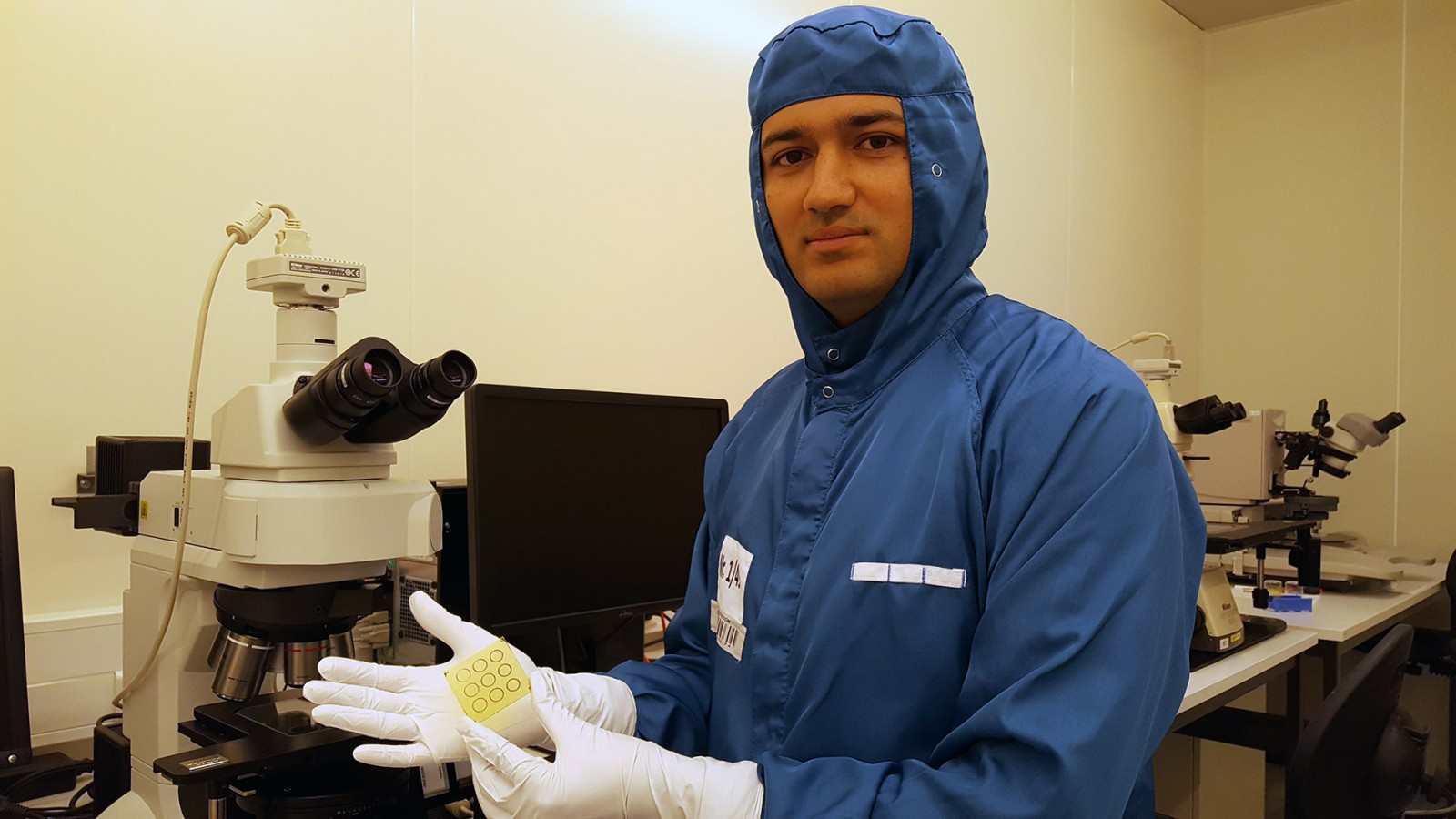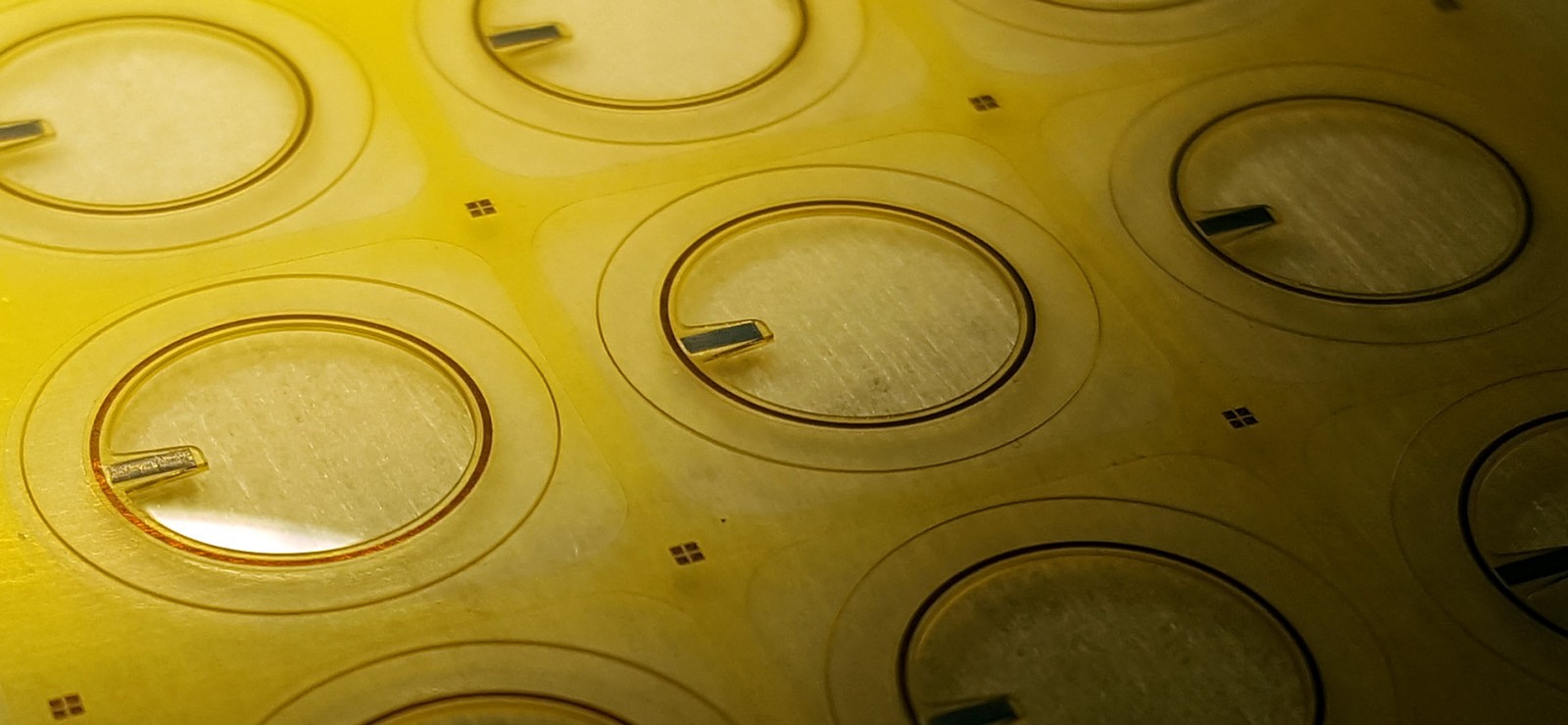No, it’s not futuristic fiction: a contact lens with technology that imitates the effect of the human iris. Helping people with a damaged or missing iris to improve their sight and patients with chronic migraine to reduce their light sensitivity. It’s a hi-tech accomplishment that Ghent University and imec will now market: the spin-off Azalea Vision will continue developing and commercialising the contact lens.
That blinking in the morning as a reaction to the first bright light. We’re all familiar with it. That’s a sign that your irises are hard at work. They regulate the amount of light entering the eye. These adjustments are why you can see both when there’s lots of light and when night falls.
At least that’s how it’s meant to work, but for lots of unlucky people it’s not the case. An estimated 20 million people around the world suffer from an eye complaint, including a damaged or missing iris. This makes the eye much more sensitive to light, causing all kinds of consequences for their vision. They see less sharply, struggle to perceive light and, in some cases, it can even result in low vision and blindness.
Artificial iris
But there is light at the end of the tunnel. Researchers at Ghent University and research centre imec have designed an artificial iris that imitates the human model. Picture it as an electronic contact lens that can alter the size of the pupil. Something remarkable: the lens not only regulates how much light can enter, but also the depth of field, just like a real camera.
And that’s the big difference compared to solutions already on the market. Static contact lenses with a fixed iris, artificial iris implants, or glasses with variable transparency can resolve part of the problem, but are not yet able to imitate every function of the iris. This means that the amount of light coming in is adjusted, but patients still fail to see sharply, for example.

LCD technology
So how does this kind of artificial iris actually work? “The lens, applied like any normal contact lens, contains LCD technology which can copy the movements of the iris with ring-shaped pixels”, explains professor Andrés Vásquez Quintero. “Movements are controlled by ultra-thin electronics, completed with a blinking detector. A photodiode, a kind of light detector, determines exactly how much light may enter.”
Not only that, the lens also consumes very limited energy, and can be charged at night on your bedside table thanks to an integrated NFC chip.
Microsystem technology
The technology driving the artificial iris is an ingenious example of microsystem technology. Integrating a range of technologies and expertise, such as flexible electronics, liquid-crystal technology, low-power chip design, photonics and hybrid integration. “With this kind of combination you could only expect an ultra compact and autonomous system, and this is certainly the case with this artificial iris”, explains business developer Frederik Leys.
Microsystem technology is big science, but also big business, and there is much demand from the commercial world to team up in the research. Ghent University is witnessing growing interest as well. Leading not only to interesting partnerships, but also to promising spin-offs within the domain.
Funding
Among them is Azalea Vision, a spin-off of imec and Ghent University. This company will continue developing the prototype of the artificial iris, allowing it to undergo clinical validation.
The ambition is to launch a contact lens on the market which offers a solution for all eye complaints causing a reduction in light sensitivity and depth of field. To fund this ambition Azalea Vision has already raised eight million euros, including almost two million euros from public funding coming from VLAIO.
Read also
‘Women are not just copies of men with breasts and ovaries.’
Van wetenschappelijk onderzoek tot medische behandelingen, decennialang stond de man centraal in de medische wereld. Betekent dat dan ook dat vrouwen daardoor minder goede zorg krijgen?
Research into rare eye diseases at Ghent University: “It’s fair to say we rank amongst the world’s elite”
Around 8% of the world’s population suffers from a rare disease. In Belgium some 800,000 patients are affected. One of them is eighteen-month-old Oliver, who was born blind. He is closely monitored by professor Bart Leroy, whose team has made remarkable progress in the research into rare eye diseases. Still, there are quite a few stumbling blocks as well.
Are vitamin pills innocent?
For many people, a daily dose of vitamins and minerals has become part of their everyday routine. Especially in winter we ingest massive quantities of vitamin D because we think it boosts our immune system. But is that accurate and is that daily vitamin pill as innocent as it appears?
How to taper off sleeping pills safely and responsibly
In 2023, one in five Belgians was prescribed sleep medication, making Belgium the European leader. “Many people see a sleeping pill as an innocent thing,” says GP and clinical pharmacologist Ellen Van Leeuwen, “but sleeping pills are not sweets.”




